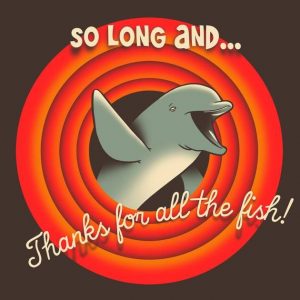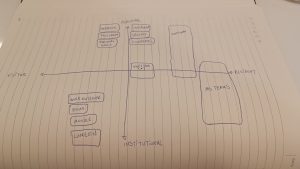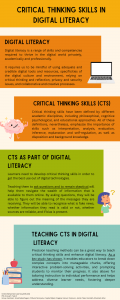Part I: No, I was not prepared for this
Having completed most of my master’s degree during the COVID-19 pandemic, I was certainly not new to the mix of synchronous and asynchronous activities in remote learning. I also had experience as both a teacher and a learner, so I thought taking this ONL course would be a breeze.
I was wrong about that, wasn’t I…?
The truth is that there is probably not much out there that can really prepare you for a course like ONL, which I can only describe as “trying to lay the tracks as you ride the train”. Now I know how Gromit felt in the GIF below…

You are a learner, yes, but you are also deciding, alongside your team, the approaches to analyze each scenario and what to focus on. Some general resources are suggested, which are useful to get you started, although you need to go look for your own sources in order to make your case. You’re free to decide which tools to use and how deep to dig. As expected, each group arrived at different destinations – which was not only ok but indeed encouraged!
Part II: What was learned
For me, the most interesting thing I learned didn’t come from the content of the course itself but rather from the way we went about it. What I noticed is that our group would start out a bit slowly, testing out the waters of each new topic until we found our footing. It would take a while until we were comfortable that we knew what we were doing until suddenly we would have an a-ha moment, with three people talking at the same when we finally saw how things fit together.
I think most people have experienced individual eurekas!, but having them as a group is something else entirely. Crucially, those moments cannot be forced. They happen as a natural outcome of the collaborative process. It will come when it comes. This was not what I had in mind before I started the course, but now I can say that what I learned is to trust the process more, enjoy the ride, and cherish the moments of collective a-ha!
Part III: What comes next
This fun aspect of collaborative work is the main thing that will stay with me and shape my future practice. I really want to start using more interactive ways to do group work with my students and challenge them to do something more than the sum of its parts. That won’t be easy, of course, and I will still have to learn much more about it. Still, now that I have started, I have a better notion of where to go.
On the other hand, I don’t think that anything has changed in my approach to technology’s role in enhancing learning. The more I read and study about it, the more skeptical I become and the less convinced I am that these tools, which are not evidence-based, can lead to a major positive shift in educational practices. We still have a long way to go before both teachers and students are digital-literate enough to be wise in using new technologies such as AI in the classroom.
In the future, I would love to continue to be part of the ONL community, although I’m still not sure as to what capacity. It seems like there are many active members here in Finland, so we could even meet for an in-person coffee at some point!
I know I’m looking forward to that.
How about you?


